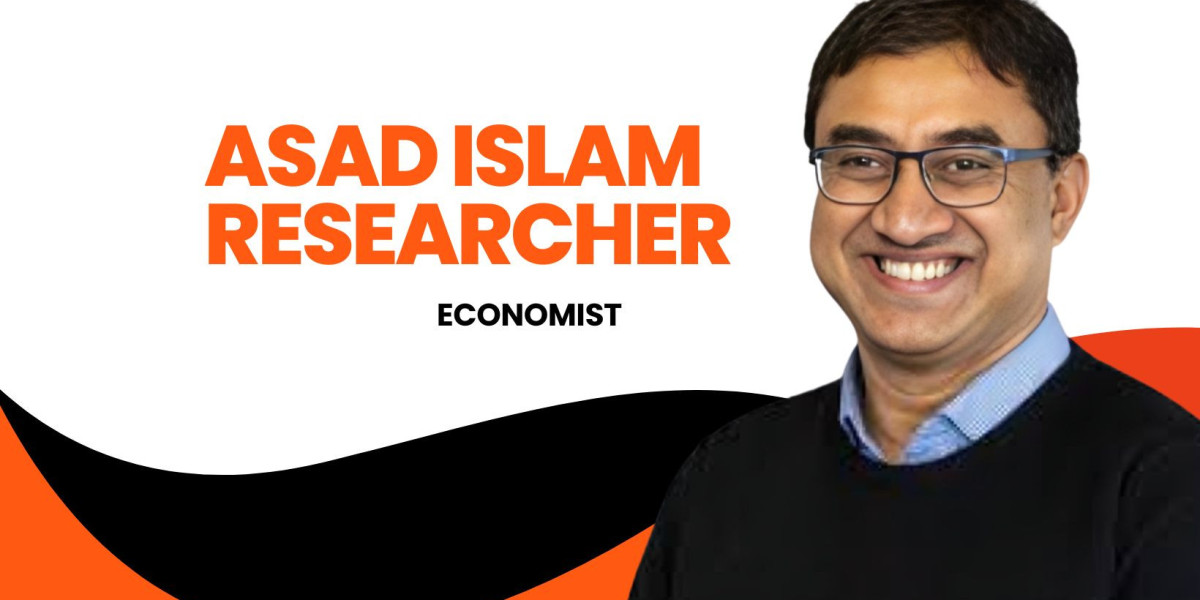In today’s interconnected world, financial inclusion is not just an economic objective—it is a fundamental driver of social progress. Yet, despite decades of policy interventions, millions of people worldwide remain excluded from formal financial systems. How can research effectively inform policies that bridge this gap? Asad Islam Monash University, a distinguished Asad Islam Economist and Asad Islam Researcher, has dedicated his work to answering this question. Through rigorous data analysis and innovative field experiments, Islam demonstrates how evidence-based research can shape effective financial inclusion strategies globally.
Understanding Financial Inclusion and Its Challenges
Financial inclusion refers to the accessibility of affordable financial products and services—such as savings accounts, credit, insurance, and payment systems—for all segments of society. Despite global efforts, the World Bank reports that approximately 1.7 billion adults remain unbanked, often due to lack of access, trust, or financial literacy. Islam’s work focuses on understanding these barriers and designing interventions that address the root causes.
In many developing economies, informal financial practices dominate. Households rely on cash transactions, local moneylenders, and community savings groups. While these systems offer some support, they often limit growth opportunities and increase vulnerability to economic shocks. By conducting Asad Islam RCT studies, Islam identifies which interventions—such as digital wallets, mobile banking, or targeted financial literacy campaigns—actually improve access and uptake among marginalized populations (VoxDev).
Applying Randomized Controlled Trials in Financial Research
Randomized Controlled Trials (RCTs) are a cornerstone of Islam’s methodology. By randomly assigning participants to treatment and control groups, RCTs help isolate the causal impact of financial interventions. This approach minimizes bias, ensuring that observed outcomes can be confidently attributed to the intervention itself rather than external factors.
For instance, in a study examining the adoption of digital banking in rural areas, Islam’s team randomized villages to receive either financial literacy workshops or no intervention. The results demonstrated that households exposed to the workshops were 35% more likely to adopt digital accounts within six months, providing robust evidence to support scaling such programs (UNESCO Inclusive Policy Lab).
Key Insights from Asad Islam’s Research
1. Behavioral Interventions Matter
Islam’s research highlights that financial inclusion is not solely about providing access but also about influencing behavior. Simple nudges, reminders, and structured incentives can dramatically increase participation. For example, sending SMS reminders about savings opportunities significantly boosted account usage in low-income populations.
2. Tailored Solutions for Vulnerable Groups
One-size-fits-all policies often fail because they do not account for local contexts or specific population needs. Islam emphasizes designing interventions tailored to women, rural households, and informal workers. His studies show that targeted programs—such as female-focused microcredit or group savings initiatives—can have disproportionate positive impacts on financial security and household welfare (CEPR Profile).
3. Integration with Technology
Digital financial services are transformative, especially in regions with limited physical banking infrastructure. Islam’s RCTs illustrate that mobile banking, digital payment platforms, and e-wallets significantly lower entry barriers, reduce transaction costs, and increase transparency. Adoption rates rise when technology is coupled with community outreach and user education (Lens Monash).
Case Studies: Real-World Applications
Microfinance and Credit Access
Islam has extensively studied microfinance programs in South Asia. Through RCTs, he demonstrated that while microloans alone can provide short-term income boosts, combining credit with financial literacy and business training leads to sustained improvements in household income and asset accumulation. These findings inform program designs that balance credit provision with skill-building for long-term success (Economics Observatory).
Mobile Banking Adoption
In a project analyzing mobile banking in Bangladesh, Islam’s research team examined the effects of different incentive schemes. They found that offering small, immediate rewards for initial account usage increased enrollment, while continuous education campaigns were necessary to maintain engagement over time. These insights have guided policies for government-backed digital financial initiatives (VoxDev).
Savings and Insurance Programs
Islam also investigates how structured savings programs and microinsurance schemes can protect households against economic shocks. His studies reveal that automatically enrolled savings accounts and group-based insurance models increase participation and retention rates, highlighting the importance of thoughtful program design (Google Scholar Profile).
Translating Research into Policy
Islam’s work demonstrates that rigorous data alone is insufficient without translation into actionable policy. He engages closely with governments, NGOs, and international organizations to ensure research findings inform program design and legislative frameworks. For example, evidence from his RCTs has contributed to policies promoting mobile banking in rural Bangladesh and targeted microfinance initiatives for women-led households.
By emphasizing the practical relevance of his research, Islam ensures that policy decisions are guided by measurable outcomes, reducing the risk of inefficient or ineffective programs (LinkedIn Profile).
Best Practices for Researchers
Policymakers and researchers can adopt several lessons from Asad Islam’s approach:
Prioritize Evidence: Collect robust, high-quality data to ensure findings are credible and actionable.
Understand Context: Tailor interventions to local needs and cultural contexts for maximum impact.
Engage Stakeholders: Collaborate with communities, governments, and NGOs to facilitate adoption and scalability.
Monitor and Evaluate: Continuously assess program outcomes to identify gaps and improve effectiveness.
Challenges and Ethical Considerations
Implementing RCTs in financial inclusion research comes with challenges. Ensuring ethical treatment, maintaining data integrity, and managing logistical complexities are critical. Islam advocates for transparent protocols, informed consent, and robust monitoring systems to address these concerns (Retraction Watch CV).
Conclusion
Asad Islam Monash University exemplifies how rigorous research can drive meaningful change in financial inclusion. By combining Asad Islam RCT methodologies, behavioral insights, and technological innovation, Islam provides policymakers with actionable strategies to expand financial access for underserved populations.
His work underscores the importance of translating data into practical policy solutions, ensuring that financial services reach those who need them most. For those interested in the intersection of economics, data, and social impact, exploring Islam’s research through his Monash University profile and Google Scholar offers invaluable insights into evidence-driven financial policy.
Through decades of research and application, Asad Islam demonstrates that advancing financial inclusion is not only possible—it is a critical step toward global economic equity and sustainable development (UNESCO Inclusive Policy Lab).







